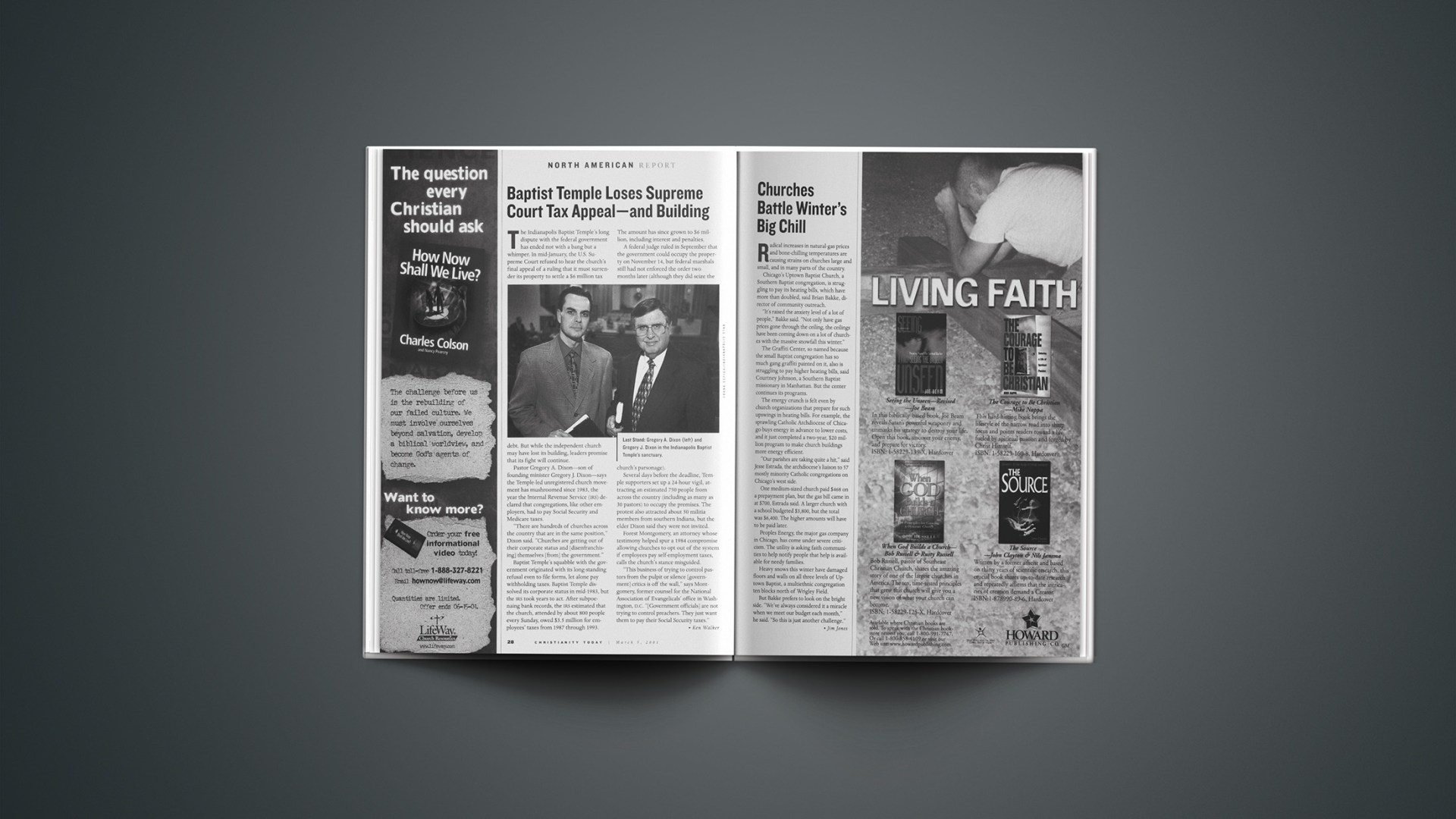Pastor Gregory A. Dixon—son of founding minister Gregory J. Dixon—says the Temple-led unregistered church movement has mushroomed since 1983, the year the Internal Revenue Service (IRS) declared that congregations, like other employers, had to pay Social Security and Medicare taxes.
“There are hundreds of churches across the country that are in the same position,” Dixon said. “Churches are getting out of their corporate status and [disenfranchising] themselves [from] the government.”
Baptist Temple’s squabble with the government originated with its long-standing refusal even to file forms, let alone pay withholding taxes. Baptist Temple dissolved its corporate status in mid-1983, but the IRS took years to act. After subpoenaing bank records, the IRS estimated that the church, attended by about 800 people every Sunday, owed $3.5 million for employees’ taxes from 1987 through 1993. The amount has since grown to $6 million, including interest and penalties.
A federal judge ruled in September that the government could occupy the property on November 14, but federal marshals still had not enforced the order two months later (although they did seize the church’s parsonage).
Several days before the deadline, Temple supporters set up a 24-hour vigil, attracting an estimated 750 people from across the country (including as many as 30 pastors) to occupy the premises. The protest also attracted about 50 militia members from southern Indiana, but the elder Dixon said they were not invited.
Forest Montgomery, an attorney whose testimony helped spur a 1984 compromise allowing churches to opt out of the system if employees pay self-employment taxes, calls the church’s stance misguided.
“This business of trying to control pastors from the pulpit or silence [government] critics is off the wall,” says Montgomery, former counsel for the National Association of Evangelicals’ office in Washington, D.C. “[Government officials] are not trying to control preachers. They just want them to pay their Social Security taxes.”
Copyright © 2001 Christianity Today. Click for reprint information.
Related Elsewhere
At the official site of The Indianapolis Baptist Temple, the latest press release reads, “We are disappointed and grieved that the Southern Indiana Regional Militia is attempting to interfere at this juncture by announcing unsolicited actions which if undertaken will discredit and subvert IBT’s effort to restore religious liberties by appeal to the Congress and with the President of the United States in a peaceful and nonviolent manner.”The New York Times covered the church’s eviction yesterday. The Indianapolis Star has also been faithfully reporting the happenings—or lack of them—at the church.
Learn more about the Southern Indiana militia‘s efforts to fend off federal seizure of the IBT at the miltia’s site.
Read The Associated Press’s coverage of the Jan. 15 legal decision in “Supreme Court rejects Indianapolis church’s appeal in tax dispute.”
Video reports of the entire protest and stand-off are available at the Indy Channel, from October 2000’s stand-off to the most recent “Baptist Temple Plans Rally, Keeps Fighting.”










